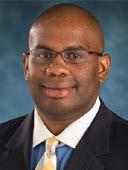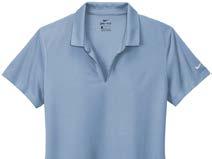CONFERENCE PROGRAM
Table of Contents
Welcome from Dr. Neumar Conference Agenda Location Maps Our Sponsors Panelists & Speakers 3 4 6 8 19
Click or tap on each heading to go directly to that page • Conference Officials & Guest Speakers • Wolf Creek XVII Panelists • Innovator Award Presenters • Michigan Union Building • Downtown Ann Arbor 1
Weil Family Foundation Ad
WOLF
CREEK XVII
was made possible through the generous support of the Weil Family Foundation
“WHOEVER SAVES ONE LIFE... ...SAVES THE WORLD ENTIRE.”
2
Welcome to Wolf Creek XVII!
We thank you all for taking the time to participate in what we hope will be an impactful meeting for both the participants and the field of cardiac arrest resuscitation.
Aligned with the purpose and goals of the first Wolf Creek Conference in 1975, we have gathered to devote ourselves to informal and challenging discussion that will lead to the propagation of ideas among individuals from academia and industry with different backgrounds, interests, and expertise.
Unlike traditional scientific meetings that focus on the dissemination of knowledge, we will spotlight the gaps in our knowledge, the barriers to translating the knowledge we have, and the priorities for our research efforts moving forward with the ultimate goal of improving cardiac arrest outcomes. We will also celebrate the future leaders in the field through our innovator competition. Finally, we hope this meeting will nurture the culture of our community, re-energize our teams, and facilitate new partnerships that will accelerate our progress.
In the concluding statement of the first Wolf Creek Conference, Peter Safar wrote “The ultimate goal of resuscitology is the restoration of lives cut short before fulfillment.” It is difficult to think of an endeavor more worthy of our efforts.
Robert W. Neumar, M.D., Ph.D.
Chair, Wolf Creek Conference Professor and Chair, Emergency Medicine, University of Michigan and Michigan Medicine
3
6:00 PM
Welcome reception at Graduate Hotel Regency Ballroom
WOLF CREEK DAY 1
Guests staying at the Graduate Hotel walk to the Union (approx. 10-minute walk)
8:00 AM
8:30 AM 9:00 AM 9:20 AM 9:35 AM
Registration/Breakfast at Rogel Ballroom (2nd Floor of Union)
Weil Institute & Wolf Creek Welcome
Robert Neumar, MD, PhD; Kevin Ward, MD; Carol Weil
Words from a Survivor - Jerry Parris
Panel Introduction and Voting Demonstration
PANEL: AUTOMATED CARDIAC ARREST DIAGNOSIS
Theresa Mariero Olasveengen, MD, PhD; Michael H. Sayre, MD; Jacob Sunshine, MD, MS; Wisse van den Beuken, MD
11:05 AM
11:20 PM
Break
PANEL: AMPLIFYING LAY-RESCUER RESPONSE
Katie Dainty, PhD; Ruud Koster, MD, PhD; Yih Yng Ng, MD, MBBS, MPH, MBA; Marcus Ong, MBBS, FRCSEd (A&E), FAMS, MPH
12:50 PM
1:00 PM
1:30 PM
“Science Flash” Presentations
Lunch
INNOVATOR AWARD PRESENTATIONS
Carolina Barbosa Maciel, MD, MSCR; Adam Gottula, MD; Rajat Kalra, MBChB, MS; Ryan Morgan, MD, MTR; Mitsuaki Nishikimi, MD; Jacob Sunshine, MD, MS
3:00 PM
3:30 PM 5:00 PM 5:30 PM 6:30 PM 7:00 PM 8:30 PM
INNOVATOR AWARD RANKING
Academic and Industry Networking Session + Free Time
Buses to stadium pick up guests outside Graduate Hotel
Tour of Michigan Stadium & Group Photo
“Sudden Cardiac Arrest in Athletic MedicineNFL Emergency Preparedness”
Jim Ellis, MD
Dinner Served
Buses depart Stadium to return to Graduate Hotel 4
PRE-CONFERENCE
JUNE
14 JUNE 15
Breakfast at Michigan Union Rogel Ballroom
Recap of Day 1 and Announcements
PANEL: MOBILE AEDs
Christine Brent, MD, FAEMS, FACEP; Steven C. Brooks, MD, MHSc, FRCPC; Maaret Castrén, MD, PhD; Sheldon Cheskes, MD
Break Time
PANEL: PHYSIOLOGY GUIDED CPR
Janet Bray, RN, PhD; Sam Parnia, MD, PhD; Thomas Rea, MD, MPH; Robert Sutton, MD, MSCE, FAAP, FCCM, FAHA; Lars Wik, MD, PhD
“Case Study: Lessons Learned from Damar Hamlin”
Jim Ellis, MD; Denny Kellington, ATC, MA; Daryl Conway, MA, AT, ATC
American Heart Association Presentation
Lunch
PM
PANEL: MECHANICAL CIRCULATORY SUPPORT
Jason Bartos, MD, PhD; Jan Bělohlávek, MD, PhD; Cindy Hsu, MD, PhD, MS, FCCM; Georg Trummer, MD; Demetri Yannopoulos, MD
2:45 PM
3:00 PM
4:30 PM
6:30 PM
Break Time
PANEL: INDUSTRY RESEARCH PRESENTATIONS
Free Time: Guests are encouraged to explore Ann Arbor
Wolf Creek Tent Opens at Ann Arbor Music Festival
WOLF CREEK DAY 3
8:00 AM 8:30 AM 9:00 AM 10:30 AM 12:00 PM
Breakfast at Michigan Union Rogel Ballroom
Recap of Day 2 and Announcements
PANEL: NEUROPROTECTION
JUNE 17
Karen G. Hirsch, MD; Todd Kilbaugh, MD; Giuseppe Ristagno, MD, PhD; Mypinder Sekhon, MD, PhD; Tomoyoshi Tamura, MD, PhD
Summing it Up: Gaps, Barriers and Priorities
Conference Close
WOLF CREEK DAY 2
JUNE 16
8:30
9:00
10:30
10:45
8:00 AM
AM
AM
AM
AM 12:15 PM 12:45 PM 1:00 PM 1:30
WOLF CREEK CONFERENCE KEY LOCATIONS
Michigan Union
Music Festival
Graduate Hotel 615 E. Huron Street 530 S. State Street 915 E. Washington Street 6
Wolf Creek Panelists
AUTOMATED CARDIAC ARREST DIAGNOSIS
Theresa Mariero Olasveengen, MD, PhD

Adjunct Professor, Anesthesia and Intensive Care Medicine, Oslo University Hospital
Dr. Olasveengen is a cardiac arrest researcher with special interest in post-arrest brain injury. She is a member of the Science Advisory Committee for the International Liaison Committee on Resuscitation (ILCOR), the Advanced Life Support Science and Education Committee for the European Resuscitation Council (ERC) and board member of the Norwegian Cardiac Arrest Registry.
Michael H. Sayre, MD
Professor, Emergency Medicine, University of Washington; Medical Director, Seattle Fire Department
Dr. Sayre oversees a broad research portfolio focused on minority health and health disparities, including research on the potential of precision medicine to address care gaps for underserved populations. He also serves on advisory and leadership committees in partnership with NIH. Prior to joining NIMHD, Dr. Sayre was the deputy director of the Division of Research Infrastructure in NIH’s National Center for Research Resources, which later became the National Center for Advancing Translational Sciences (NCATS). Earlier in his career, he conducted independent research on fundamental mechanisms of gene regulation as a faculty member at Johns Hopkins University in Baltimore, Maryland.
Jacob Sunshine, MD, MS Associate Professor, Anesthesiology & Pain Medicine, University of Washington

Dr. Sunshine is an Associate Professor at the University of Washington School of Medicine, in the Department of Anesthesiology and Pain Medicine and is adjunct faculty in the Paul G. Allen School of Computer Science and Engineering. His lab focuses on translational applications of remote sensing using commodity devices such as smartphones and speakers, with a focus on passive detection of signs of cardiopulmonary arrest.

14
Wisse van den Beuken, MD
PhD Candidate, Anesthesiology, Amsterdam UMC, VUmc
Wisse van den Beuken works as a PhD student at the Department of Anesthesiology of the Amsterdam UMC, location VUmc. His research focuses on automated cardiac arrest detection.

AMPLIFYING LAY-RESCUER RESPONSE
Katie Dainty, PhD
Research Chair, Patient-Centered Outcomes, North York General Hospital, University of Toronto


Dr. Dainty is a researcher focused on issues related to patient and family experience, implementation science, patient-centered outcome measures and quality improvement in community health care environments. Her research focuses on using robust qualitative methods to unpack long-held assumptions about bystander experience and survivorship following sudden cardiac arrest.
Ruud Koster, MD, PhD
Professor, Cardiology; Professor, ACS - Heart Failure & Arrhythmias; Amsterdam UMC
Dr. Koster initiated the AmsteRdam REsuscitation STudies (ARREST) in 1992, a registry of out-of-hospital cardiac arrest in part of the Netherlands, which is still ongoing. His research involves all aspects of basic life support and defibrillation, more recently focused on implementation of AEDs in the home environment.

Yih Yng Ng, MD, MBBS, MPH, MBA
Deputy Clinical Director, Ng Teng Fong Center for Health Innovation; Director, Digital and Smart Health Office, Tan Tock Seng Hospital
Dr. Ng is a public health physician overseeing healthcare policy for Singapore’s Ministry of Home Affairs and the Director of the Digital and Smart Health Office at The Center for Health Innovation. His interests are in EMS systems, resuscitation, digital health and population health.
15
Marcus Ong, MBBS, FRCSEd (A&E), FAMS, MPH
Senior Consultant; Director of Research; Clinican Scientist, Emergency Medicine, Singapore General Hospital
Prof. Ong is Senior Consultant, Director of Research, and Clinician Scientist in the Department of Emergency Medicine at Singapore General Hospital. His research studies focus on prehospital emergency care, medical devices, data science and health services.

MOBILE AEDs
Christine Brent, MD, FAEMS, FACEP

Clinical Assistant Professor, Emergency Medicine; Assistant Medical Director, Survival Flight, University of Michigan
Dr. Brent is a Clinical Assistant Professor of Emergency Medicine at the University of Michigan. She holds several positions within the department, including Chief of the Division of Emergency Medical Services, Assistant Medical Director of Survival Flight, and Program Director of the EMS Fellowship.
Dr. Brent has a specific research interest in the utilization of drones in prehospital medicine and has garnered industry funding for this work.

Steven C. Brooks, MD, MHSc, FRCPC
Associate Professor, Emergency Medicine, Queen’s University; Chief Medical Officer, Rapid Response Revival
Dr. Brooks’s work focuses on novel strategies and technology to improve the community response to out-of-hospital cardiac arrest (OHCA).
His current projects involve a novel mobile device application to crowdsource basic life support for those who experience OHCA, a pilot program involving CPR-trained and AED-equipped lay volunteers for the paramedic service in communities at risk for longer paramedic response times, and an observational study using a large administrative dataset to characterize mental illness and related health services use among survivors of OHCA.
16
Maaret Castrén, MD, PhD
Professor, Emergency Medicine and Services, Helsinki University Hospital
Dr. Castrén leads prehospital and emergency care for the region of Uusimaa in Finland and has over 800,000 patient contacts each year.
She became the first Professor of Emergency Medicine in Sweden at Karolinska Institutet 2007, and at Helsinki University 2016. She is the Past Chair of the European Resuscitation Council and the Honorary Secretary of ILCOR.

Sheldon Cheskes, MD
Professor, Emergency Medicine, Family and Community Medicine, University of Toronto

Dr. Cheskes is a Professor with the Division of Emergency Medicine, Department of Family and Community Medicine at the University of Toronto, a scientist at the Li Ka Shing Knowledge Institute at St. Michael’s Hospital and an affiliate scientist at Sunnybrook Research Institute. He is one of the principal investigators for the Canadian Resuscitation Outcomes Consortium and is a recognized international authority in the area of CPR quality and out-of-hospital cardiac arrest resuscitation.
Janet Bray, RN, PhD
Associate Professor, Pre-hospital, Emergency and Trauma Unit, School of Public Health and Preventative Medicine, Monash University
Prof. Bray’s background in cardiac and intensive care nursing has driven her research career to improve outcomes for critically ill cardiovascular patients—particularly those experiencing cardiac arrest, heart attack and stroke.
Dr. Bray’s research program aims to improve the public’s recognition and response to acute cardiovascular symptoms and improve the evidence-base for acute cardiovascular care. Her published research includes multicenter randomised control trials (AVOID, RINSE).
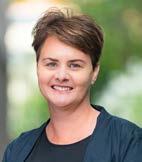
17
PHYSIOLOGY-GUIDED CPR
Sam Parnia, MD, PhD

Associate Professor, Medicine, NYU Langone Medical Center
Dr. Parnia is Associate Professor of Medicine at the NYU Langone Medical Center, where he is also director of research into cardiopulmonary resuscitation. In the United Kingdom, Dr. Parnia is Director of the Human Consciousness Project at the University of Southampton. He is known for his work on near-death experiences and cardiopulmonary resuscitation.
Thomas Rea, MD, MPH

Professor and Section Head, General Internal Medicine, University of Washington
Dr. Rea is an internist in Seattle, Washington and is affiliated with multiple hospitals in the area, including UW Medicine-University of Washington Medical Center and UW Medicine-Harborview Medical Center. Dr. Rea received his medical degree from University of Michigan Medical School and has been in practice for more than 20 years.
Robert Sutton, MD, MSCE, FAAP, FCCM, FAHA
Professor, Anesthesia, Critical Care Medicine, Pediatrics, University of Pennsylvania, Children’s Hospital of Philadelphia (CHOP)
Dr. Sutton is an internationally recognized expert in pediatric cardiac arrest resuscitation. His career is focused on developing and evaluating novel techniques and devices to improve the care delivered during in-hospital resuscitation attempts. He is the immediate past Chair of the AHA’s National Get With the Guidelines–Resuscitation Registry Pediatric Research Task Force and has been a main author of either the Pediatric Advanced or Basic Life Support Guidelines since 2015.
Lars Wik, MD, PhD

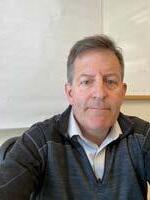
Senior Consultant, Anesthesiology, Oslo University Hospital
Dr. Wik is a Senior Consultant of Anaesthesiology at Oslo University Hospital and the Norwegian National Advisory Unit on pre-hospital Emergency Medicine (NAKOS), where he also holds a position as a Senior Researcher. Since 1985, Dr. Wik has been active in conducting clinical and experimental research into mechanical CPR and holds several patents related to Emergency Medicine technology. His main interests are CPR, trauma, and new technologies for surveillance of vital symptoms and measurements.
18
MECHANICAL CIRCULATORY SUPPORT
Jason Bartos, MD, PhD
Associate Professor, Cardiology, University of Minnesota
Dr. Bartos is Associate Professor of Cardiology at the University of Minnesota where he works as a critical care physician and interventional cardiologist. He is also the Section Head of the Critical Care Cardiology section of the Cardiology Division, Medical Director of the Cardiovascular Intensive Care Unit, and the Associate Director of the Center for Resuscitation Medicine where he has worked to develop the University of Minnesota extracorporeal cardiopulmonary resuscitation program and the mobile ECMO program covering the Twin City metro area.
Jan Bělohlávek, MD, PhD
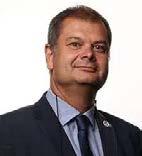
Head, Cardiovascular Surgical Intensive Care Unit, Department of Cardiovascular Surgery, University of Freiburg
Dr. Bělohlávek is active in clinical research with a main focus on refractory cardiac arrest, ECPR (extracorporeal cardiopulmonary resuscitation) ECMO reperfusion, microcirculation, different ECMO settings.

He is the main investigator of the Prague OHCA study comparing ECPR/invasive based approach to standard therapy in refractory cardiac arrest published in JAMA 2022.
Dr. Bělohlávek also participated in the ECMO-CS cardiogenic shock study published in Circulation 2023, evaluating the role of ECMO in severe cardiogenic shock.
Cindy Hsu, MD, PhD, MS, FCCM
Division Chief, Critical Care; Assistant Professor, Emergency Medicine and Acute Care Surgery, University of Michigan
Dr. Hsu is an emergency medicine physician and surgical intensivist who cares for patients in Michigan Medicine’s Adult Emergency Department, Emergency Critical Care Center, and Trauma/Burn Intensive Care Unit.
Dr. Hsu strives to transform cardiac arrest care by dismantling the gaps between translational research and clinical implementation, with an emphasis on improving the neurologic outcome of cardiac arrest patients. Her research has spanned from large animal models to clinical trials of out-of-hospital cardiac arrest and other acute conditions, to mixed methods research on emergency trial conducts.

19
Georg Trummer, MD
Head, Cardiovascular Surgical Intensive Care Unit, Department of Cardiovascular Surgery, University of Freiburg
Dr. Trummer is a Cardiac Surgeon specialized in intensive care medicine, extracorporeal circulation and resuscitation. The daily routine in organ protection and extracorporeal circulation led to the research on controlled whole body reperfusion—“CARL”— after cardiac arrest using extra coporeal circulation. This research started in 2003 at UCLA and is ongoing in Freiburg/Germany with paralleled engineering of suitable medical devices in a spin-off of the University of Freiburg.
Demetri Yannopoulos, MD


Professor, Medicine; Research Director, Interventional Cardiology, Director, Resuscitation Medicine University of Minnesota
Dr. Yannopoulos has dedicated his scientific and academic career in the field of resuscitation. He has had continuous funding from the NIH to evaluate methods to improve neurological outcomes after prolong untreated arrest for the last 10 years, and is the Principal Investigator of the NIH Funded ARREST Trial. Dr. Yannopoulos has been actively redefining the future of time-sensitive interventions in the emergency medical field, and designed the first-of-its-kind medical mobile ECMO truck used to deliver immediate medical care to cardiac arrest patients.
NEUROPROTECTION
Karen G. Hirsch, MD
Associate Professor, Neurology and Neurosurgery, Stanford University and Stanford Health Care
Dr. Hirsch’s research focuses on using continuous and discrete multi-modal data to develop phenotypes and identify signatures of treatment responsiveness in patients with coma after cardiac arrest. She is the Co-PI of PRECICECAP (PRecision Care In Cardiac ArrEst - ICECAP, NINDS R01 NS119825-01) and works closely with collaborators in data science at Stanford and with industry partners to apply machine learning analyses to the complex multi-modal ICU data. Dr. Hirsch also studies neuro-imaging in post-cardiac arrest coma and traumatic brain injury.

20
Todd Kilbaugh, MD
Assistant Professor of Anesthesia, Critical Care and Pediatrics, Perelman School of Medicine; Medical Director, ECMO Center, Children’s Hospital of Philadelphia (CHOP)

Dr. Kilbaugh is an anesthesiologist with the Department of Anesthesiology and Critical Care Medicine and medical director of the ECMO Center at Children’s Hospital of Philadelphia.
Dr. Kilbaugh’s areas of expertise are Pediatric Surgical and Neurosurgical Critical Care, Perioperative Surgical Site Prophylaxis, Traumatic brain injury and neuroprotection.

Giuseppe Ristagno, MD, PhD

Associate Professor, Department of Pathophysiology and Transplantation, University of Milan
Dr. Ristagno is an anesthesiologist focused on preclinical and clinical studies on cardiac arrest with main focus on defibrillation and neuroprotection.
Mypinder Sekhon, MD, PhD
Clinical Associate Professor, Critical Care Medicine, Vancouver General Hospital, University of British Columbia
Dr. Sekhon is an intensivist and clinician scientist at Vancouver General Hospital / University of British Columbia. His interests include translational ischemia-reperfusion research in humans with post-cardiac arrest brain injury. Specifically, his research team integrates direct neuromonitoring with biomarker based analytics to ascertain insights into the disease pathophysiology in humans.
Tomoyoshi Tamura, MD, PhD
Departments of Cardiology, Emergency and Critical Care
Medicine, Keio University
Dr. Tamura works on translational studies in the fields of shock and cardiac arrest with a main focus on the clinical translation of hydrogen inhalation to mitigate post-cardiac arrest brain injury.
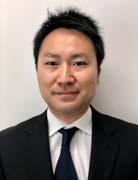
21
Innovator Award Presenters
Recognizing six investigators who are challenging current paradigms in resuscitation science.
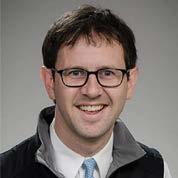


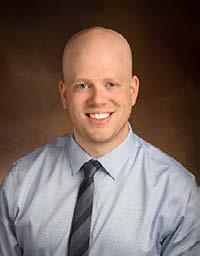

Who will take home the 2023 Innovator Award?
University of Florida
University of Michigan
University of Minnesota
Children’s Hospital of Philadelphia
Hiroshima University
University of Washington
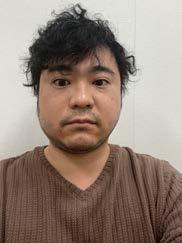
22
Carolina Barbosa Maciel, MD, MSCR
Ryan Morgan, MD, MTR
Mitsuaki Nishikimi, MD Jacob Sunshine, MD, MS
Adam Gottula, MD Rajat Kalra, MBChB, MS




















 Executive Director, Max Harry Weil Institute for Critical Care Research and Innovation; Professor, Emergency Medicine and
Executive Director, Max Harry Weil Institute for Critical Care Research and Innovation; Professor, Emergency Medicine and



